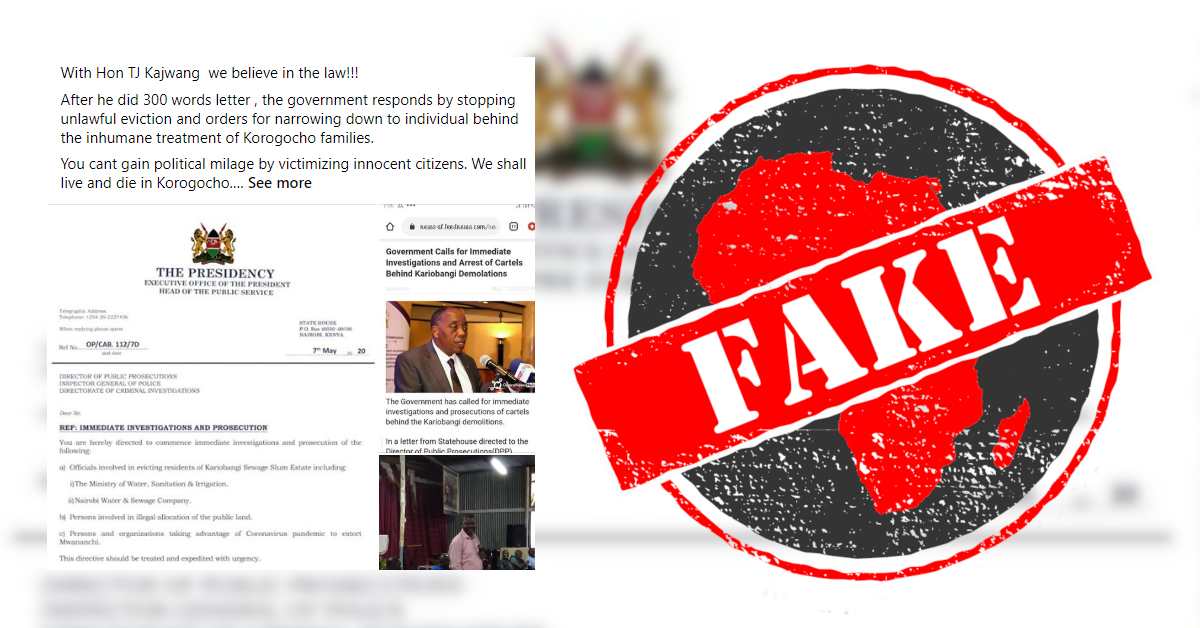On 4 May 2020, about 5,000 people were evicted from the Kariobangi neighbourhood of the Kenyan capital Nairobi and their homes demolished.
Since then, a copy of a letter has been shared in a number of Facebook posts, with the claim that the “Government Calls for Immediate Investigations and Arrest of Cartels Behind Kariobangi Demolations”.
The letter appears to be from the presidency, signed by the head of public service, Joseph Kinyua. In the letter, Kinyua directs the director of public prosecutions, the inspector general of the police service and the director of criminal investigations to prosecute people involved in the demolitions.
The trio are also ordered to investigate and prosecute “Persons involved in illegal allocation of the public land” and “taking advantage of Coronavirus pandemic to extort Mwananchi [citizens]”.

The Ministry of Interior has urged the public to disregard the letter through their verified Twitter account
The ministry shared an image of the letter with “FAKE” stamped across it in red and tweeted: “Please disregard this letter circulating on social media purporting to have come from the Head of public service.” – Grace Gichuhi
Since then, a copy of a letter has been shared in a number of Facebook posts, with the claim that the “Government Calls for Immediate Investigations and Arrest of Cartels Behind Kariobangi Demolations”.
The letter appears to be from the presidency, signed by the head of public service, Joseph Kinyua. In the letter, Kinyua directs the director of public prosecutions, the inspector general of the police service and the director of criminal investigations to prosecute people involved in the demolitions.
The trio are also ordered to investigate and prosecute “Persons involved in illegal allocation of the public land” and “taking advantage of Coronavirus pandemic to extort Mwananchi [citizens]”.

‘Please disregard this letter’
The Ministry of Interior has urged the public to disregard the letter through their verified Twitter account
The ministry shared an image of the letter with “FAKE” stamped across it in red and tweeted: “Please disregard this letter circulating on social media purporting to have come from the Head of public service.” – Grace Gichuhi
Republish our content for free
For publishers: what to do if your post is rated false
A fact-checker has rated your Facebook or Instagram post as “false”, “altered”, “partly false” or “missing context”. This could have serious consequences. What do you do?
Click on our guide for the steps you should follow.
Publishers guideAfrica Check teams up with Facebook
Africa Check is a partner in Meta's third-party fact-checking programme to help stop the spread of false information on social media.
The content we rate as “false” will be downgraded on Facebook and Instagram. This means fewer people will see it.
You can also help identify false information on Facebook. This guide explains how.


Add new comment